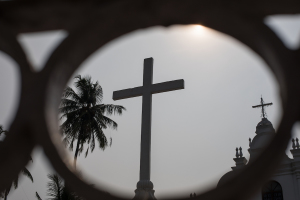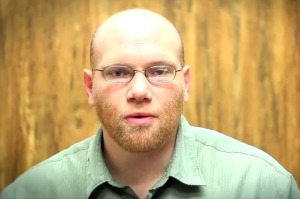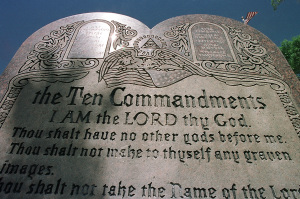Five Judges Rebuke 'Clearly and Gravely Wrong' Birth Control Mandate Ruling Against Nuns
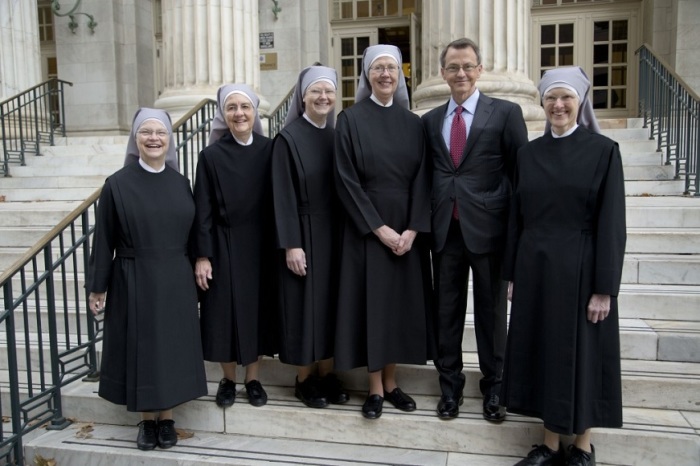
In a rare act of dissent, five circuit judges have denounced a ruling by a federal court against a group of nuns trying to get an exemption from the federal government's birth control mandate, calling the decision "clearly and gravely wrong."
In July, a three-judge panel of the Tenth Circuit Court of Appeals ruled against the Little Sisters of the Poor, arguing that the Catholic order cannot be exempted from the Department of Health and Human Services' birth control mandate.
In the dissent published Thursday, five circuit judges argued that the panel decision against the nuns was "clearly and gravely wrong — on an issue that has little to do with contraception and a great deal to do with religious liberty."
"All the plaintiffs in this case sincerely believe that they will be violating God's law if they execute the documents required by the government. And the penalty for refusal to execute the documents may be in the millions of dollars. How can it be any clearer that the law substantially burdens the plaintiffs' free exercise of religion?" continued the dissent.
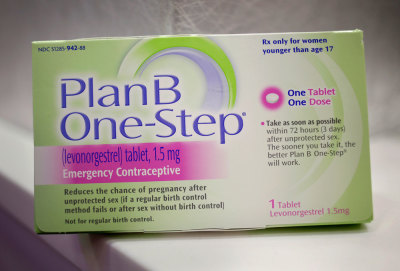
"Fortunately, the doctrine of the panel majority will not long survive. It is contrary to all precedent concerning the free exercise of religion. I am aware of no precedent holding that a person's free exercise was not substantially burdened when a significant penalty was imposed for refusing to do something prohibited by the person's sincere religious beliefs …"
In September 2013, the Little Sisters of the Poor filed a suit against HHS over its controversial "preventive services" mandate.
Although the mandate exempts houses of worship automatically under the "religious employers" category, the Little Sisters did not receive an automatic exemption, but received what the Obama administration refers to as an "accommodation."
Under the accommodation, the Little Sisters are not required to cover birth control in their health insurance, but they are required to certify that they seek the accommodation, which allows employees to get the coverage indirectly. That certification, the Little Sisters say, makes them complicit in sin. Additionally, the Little Sisters argue that religious freedom is not just for churches, so they should receive the same exemption given to churches.
In January, Supreme Court Justice Sonia Sotomayor granted the Little Sisters a temporary injunction protecting them from the demands of the accommodation as their case continued.
Last December, the Tenth Circuit heard oral arguments in the Little Sisters' lawsuit and in July ruled against the nuns. Supporters of the mandate, including Americans United for Separation of Church and State, celebrated the circuit court's decision.
"Many of the employees who work at the Little Sisters' nursing homes are not nuns. We don't know how many of those employees want or need access to contraceptives, but not a single nun is being forced to pay for those medications under the Affordable Care Act," wrote Simon Brown of Americans United.
"So in reality, the government is not forcing nuns to buy medications to which they object. Whatever health care decisions those employees make has no effect whatsoever on the nuns' ability to practice their religion."
In July, the Little Sisters asked the U.S. Supreme Court to review their case. Among the amicus briefs filed on behalf of the nuns, one was submitted by 20 states attorneys general.
"… a number of federal courts have now accepted the Executive's invitation to assess the force of a religious conviction. That approach intrudes upon the dignity of adherents' convictions about profound religious concepts involving facilitation or complicity," read the amicus brief.
"It subjects those beliefs to judicial review, as if courts are well situated to determine the substantiality of the reasons of faith animating a believer's desired exercise of religion, as opposed to the substantiality of the governmental burden on that religious exercise."
The Little Sisters are being represented by the Washington, D.C.-based Becket Fund for Religious Liberty, a legal firm that has overseen dozens of lawsuits against the HHS mandate.
"Today's opinion offers important support to the Little Sisters' request that the Supreme Court hear their case," said Mark Rienzi, Senior Counsel at the Becket Fund who is representing the Little Sisters, in a statement released Thursday.
"These judges understand that courts and bureaucrats should not be telling nuns what the Catholic faith requires."















